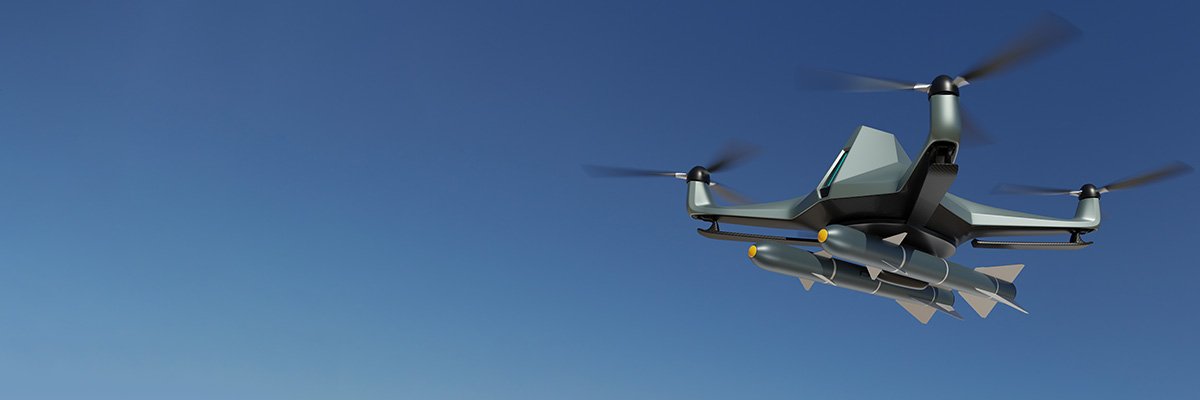Tech News
Will autonomous weapons make humans passive participants in war?

Warfare has always been influenced by advancements in technology, and the current race to develop lethal autonomous weapons systems (AWS) is no different. While proponents believe that these systems can promote peace through deterrence, critics argue that they could lead to increased conflict and dehumanization by placing life-and-death decisions in the hands of algorithms.
The debate surrounding AWS revolves around the level of control that human operators retain over these systems, especially as warfare evolves to a faster pace. The consensus is that AWS will significantly accelerate the speed of warfare, raising concerns about the potential for large-scale conflicts to be fought at a pace beyond human comprehension.
Experts in artificial intelligence and robotics have warned about the dangers of AWS, urging for strict international regulations to prevent their proliferation and misuse. While some countries advocate for responsible use of AWS with human oversight, others resist binding safeguards, leading to a major arms control dilemma.
The integration of AI into military operations is already transforming warfare, with drones and other autonomous systems being used in various conflict zones around the world. The rapid advancement of technology is driving the development of more sophisticated weapons systems, raising questions about accountability and human oversight in the use of force.
‘Computer says kill’
Automation bias, where users defer to computer-generated decisions over their own judgement, poses a significant risk in the use of AI in military operations. The allure of “addictive intelligence” that subtly manipulates human behavior is a concern in the development of AWS.
The potential for AI models to recommend scorched earth tactics and nuclear strikes raises ethical and strategic concerns about the use of intelligent weapons systems in warfare.
Automating conflict
The use of autonomous systems in conflict zones like Ukraine has demonstrated the increasing role of AI and robotics in modern warfare. The development and deployment of drones with autonomous capabilities are reshaping military strategies and tactics.
From drone warfare to AI-controlled surface vessels, autonomous technologies are changing the landscape of warfare and influencing military doctrines.
AWS’s escape velocity
Leaders in the field of AI and military strategy advocate for a maximalist approach to the use of AWS, emphasizing the role of artificial agents in military planning and operations. The integration of AI into military decision-making processes could revolutionize the way wars are fought in the future.
However, concerns remain about the implications of fully integrating AWS into military operations, including the potential for increased brutality and the erosion of human oversight in armed conflicts.
Human oversight
Maintaining human oversight in the use of AWS is a key concern for military powers, although the specifics of what this entails remain unclear. As AI systems evolve, there is a risk of distancing human control from the decision-making processes of autonomous weapons systems.
Experts warn that the increasing automation of military functions could lead to a significant shift in the nature of warfare and the accountability for the use of force.
Autonomous drones
The development of autonomous drones capable of operating in swarms and executing attacks independently raises concerns about the potential misuse of AI-powered weapons. The need for continuous training and assessment of autonomous weapons systems is emphasized to ensure they operate in accordance with human values and rights.
Calls for liberal democracies to engage in public debate and establish governance mechanisms for the use of intelligent weapons aim to mitigate the risks associated with AWS and promote responsible military use of AI.
-

 Destination8 months ago
Destination8 months agoSingapore Airlines CEO set to join board of Air India, BA News, BA
-

 Breaking News10 months ago
Breaking News10 months agoCroatia to reintroduce compulsory military draft as regional tensions soar
-

 Tech News12 months ago
Tech News12 months agoBangladeshi police agents accused of selling citizens’ personal information on Telegram
-

 Gadgets3 months ago
Gadgets3 months agoSupernatural Season 16 Revival News, Cast, Plot and Release Date
-

 Productivity11 months ago
Productivity11 months agoHow Your Contact Center Can Become A Customer Engagement Center
-

 Gadgets3 weeks ago
Gadgets3 weeks agoFallout Season 2 Potential Release Date, Cast, Plot and News
-

 Breaking News10 months ago
Breaking News10 months agoBangladesh crisis: Refaat Ahmed sworn in as Bangladesh’s new chief justice
-

 Toys12 months ago
Toys12 months ago15 of the Best Trike & Tricycles Mums Recommend























